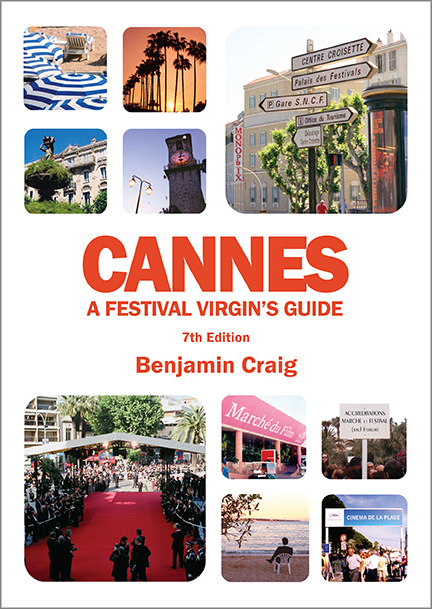
History of the Cannes Film Festival
Part 1: Messieurs, j'ai une idée ...
On the surface, it may seem strange that a city such as Cannes plays host to what has become the world's most famous film festival. It's not a capital city, or even near one. Yes, cinema as we know it was invented in France, but that was in Paris, not Cannes. And sure, the weather in Cannes may be nice, but that's certainly not a unique selling point. So just how did a small resort town in the south of France end up hosting the most prestigious film festival there is?
Like much of the world as we know it today, the Cannes Film Festival exists as an indirect result of the rise of fascist regimes in Europe during the 1930s. Its roots date back to 1932 when the first competitive international film festival was held in Venice, Italy. In those days, the Mostra di Venezia (and chiefly its awards) was as much about the national prestige of the participating countries as it was about the films. With the 30s marching on, both the official selection and the prize-winners began to noticeably favour the countries of the fascist alliance, particularly Germany and Italy.
Matters came to a head in 1938 when Jean Renoir's "La Grande Illusion" was overlooked for the festival's top prize, the Coppa Mussolini ("Mussolini Cup"), despite being the clear favourite among festivalgoers and jury members alike. Instead, the coppa was jointly-awarded to films from Germany and Italy. The German film, "Olympia", was commissioned by Joseph Goebbels to document Nazi successes at the 1938 Berlin Olympics; and the Italian film, "Luciano Serra, Pilota", had been made under the supervision of Mussolini's son.
When the jury's 'decision' was announced, the French were of course outraged and withdrew from the festival. Both the British and American jurors also resigned in protest of the idea that politics and ideology were able to stamp all over artistic expression. "La Grande Illusion" – ostensibly an anti-war film – was subsequently banned in Germany and Italy, with Goebbels himself branding it "Cinematic Public Enemy No. 1". But with perhaps a hint of schadenfreude, Venice's folly would turn out to be Cannes' triumph.
Later that same year, a group of critics and filmmakers got together in Paris to petition the French government to underwrite the cost of running an alternative international film festival in France; one where films could compete without political bias or censorship. Initially, the government was lukewarm to the idea, worried about the potential for upsetting Mussolini. But the lobby group wasn't easily dissuaded. With a triumvirate of powerful industry figures at the vanguard - Philippe Erlanger, Robert Favre Le Bret (who would become the festival's longest serving president), and Louis Lumière (the co-inventor of cinema) – the group ratcheted up the pressure until the government eventually caved. The festival had its greenlight.
Funding secure, the team set about looking for a suitable location to host the event. Several cities were initially considered, but the final choice came down to either Biarritz on the Atlantic coast or Cannes on the Mediterranean. Officially, it was the city's "sunny and enchanting location" which clinched it for Cannes, however most people acknowledge that the real reason was the fact that, unlike in Biarritz, the municipal authorities in Cannes agreed to cough up the dough to build a dedicated venue for the event.
 A full rundown on the 2026 Cannes Film Festival, is available in the book, Cannes - A Festival Virgin's Guide (7th Edition).
A full rundown on the 2026 Cannes Film Festival, is available in the book, Cannes - A Festival Virgin's Guide (7th Edition). Find Out More >
Continue reading... Part 2: And, Act... Wait, What? >